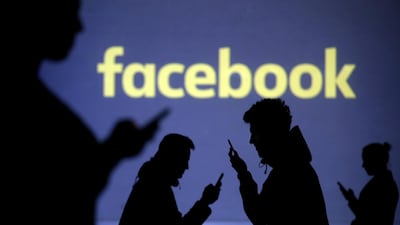Facebook has revealed that the personal data of up to 87 million people may have been improperly shared with political consultancy Cambridge Analytica, far more than previously thought.
Earlier estimates had suggested around 50 million users were affected by the scandal involving the Trump-affiliated firm, which is said to have gathered the information with the intent of swaying elections.
Chief executive Mark Zuckerberg admitted on Wednesday that the social network had not taken a broad enough view of its responsibility in the world, calling it a “huge mistake. It was my mistake”.
"Knowing what I know today, clearly we should have done more," he added.
However, he insisted that he was still the best person to lead the company he founded.
Congressional officials in the US said Mr Zuckerberg will testify about the matter next Tuesday and Wednesday. British MPs have also written another letter to him requesting him to appear in front of their digital committee, after Facebook said it would send two of his deputies instead.
The latest developments came as the social media giant announced plans to restrict the personal data that outsiders can access in the wake of the scandal.
_______________
Read more:
After the Facebook scandal, questions of privacy and consent still abound
Zuckerberg agrees with European privacy law but does not commit
Macron slams Facebook and Google as ‘too big to be governed’
_______________
Facebook first acknowledged in March that the personal information of millions of users had wrongly ended up in the hands of Cambridge Analytica.
Shares in the tech giant have collapsed by more than 16 per cent since then, as world leaders and policymakers have lined up to call for more regulation of social media following the revelations.
Investigations undertaken by the New York Times and Observer newspapers had led to the earlier estimate of around 50 million affected Facebook users.
But on Wednesday, Facebook's chief technology officer Mike Schroepfer wrote in a blog post that the data of as many as 87 million people was shared. Most of them were in the US, he added.
Facebook said it reached the higher figure by taking the 270,000 people who had downloaded a personality quiz app created by researcher Aleksandr Kogan, and then adding in the number of friends they had at the time.
This personal information was then passed on to Cambridge Analytica, which said it had engaged Mr Kogan “in good faith” to collect Facebook data. Facebook says the move was against its rules.
“We didn’t take a broad enough view of what our responsibility was,” Mr Zuckerberg said in a conference call with reporters. “We’re broadening our view of our responsibility.”
London-based Cambridge Analytica, which worked for Donald Trump’s 2016 presidential campaign, insisted the number of affected users was far lower than Facebook’s estimate.
In a tweet on Wednesday, it said it licensed data on 30 million people, contradicting Facebook’s 87 million claim.
It also insisted again that it had deleted all the data.
Mr Zuckerberg admitted that his company should have done more to oversee third-party app developers like the one that Cambridge Analytica hired.
"When you're building something like Facebook that is unprecedented in the world, there are going to be things that you mess up," he said. He added that it was important to learn from mistakes.
However, he said he was unaware of any conversations among Facebook board members to oust him. He added that he was not planning to fire anyone over the data leak.
"I'm not looking to throw anyone else under the bus for mistakes that we made here," he said.
As Facebook seeks to get a grip on the unfolding crisis, it unveiled a series of changes to better protect people’s privacy.
The firm said it is disabling a feature that lets users find other people by entering a phone number or an email address. This option was being improperly used by businesses to gather profile information, it said.
It is also limiting the access that app developers can gain about events organised on Facebook, as well as information such as member lists from groups.
This coming Monday, all of Facebook’s 2 billion users will receive a notice on their news feeds which outlines which apps they use, and the data that they share with those apps. Those whose information may have been improperly shared with Cambridge Analytica will also be informed.
Facebook also announced a new privacy policy aimed at better explaining the data it collects on users. However, the move does not change what the social network collects and shares.
Mr Zuckerberg claimed that a campaign set up in the wake of the scandal, urging users to delete their Facebook accounts, has had no "meaningful impact" on the company.
He also defended the practice of gathering user data as part of a business model enabling advertisers to target specific audiences. “People tell us that if they’re going to see ads, they want the ads to be good,” he said.
Mr Zuckerberg is scheduled to appear before Senate and House committees on April 10 and 11 to address questions about users’ privacy.
The scandal has also triggered investigations by the UK’s Information Commissioner's Office, while Australia’s government has also begun a formal investigation to determine whether the company breached the country’s privacy laws.

